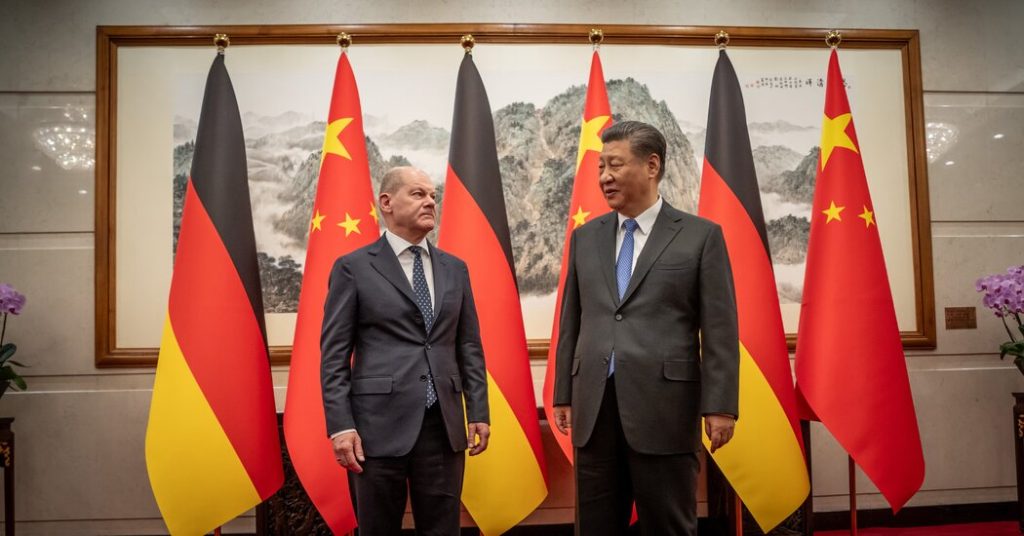Chancellor Olaf Scholz of Germany recently visited China to promote business ties with the country, while also expressing concerns about unfair competition and China’s support for Russia. This delicate balancing act comes as Germany struggles with economic challenges and a growing reliance on China for growth. During his visit, Mr. Scholz met with top Chinese leaders, visited German companies with investments in China, and engaged with trade representatives and students.
Mr. Scholz emphasized the importance of fair competition, calling for a level playing field for German companies operating in China. He also highlighted the need for discussions about trade to be based on fairness rather than protectionism. Germany’s economy has contracted, in part due to rising energy costs linked to Russia’s war in Ukraine, which has been supported by China. This backdrop has made it increasingly difficult for German companies to compete in the Chinese market.
With thousands of German companies active in China, Germany stands to lose more than other European partners if China were to retaliate against the European Union. The Chinese market is crucial for German businesses, particularly those in sectors like green technology, which have faced trade disputes with Europe and the United States. Maintaining an open Chinese market is a priority for both German companies and the German government.
Chinese officials have dismissed European accusations of unfair trading practices as protectionism, expressing dissatisfaction with investigations into Chinese subsidies. Beijing has indicated that it could take countermeasures if the European Union imposes trade restrictions. Chinese Commerce Minister Wang Wentao recently visited Europe to show support for Chinese companies and counter the narrative of China dumping goods on the region.
Germany’s business ties with China are important for both countries, with German carmakers and major companies heavily invested in the Chinese market. Mr. Xi Jinping’s emphasis on national security has raised concerns among Western businesses, but China is keen to attract foreign investment to boost its economy. Mr. Scholz’s visit is seen as an opportunity for China to strengthen its relations with Europe and potentially influence political decision-making in Berlin.
While Mr. Scholz’s trip aimed to promote economic cooperation between Germany and China, he also raised concerns about China’s support for Russia’s wartime economy and its flood of goods into Europe. The delicate dance of maintaining economic ties with China while managing U.S. pressure to align against Beijing is a challenge for Germany. As China looks to deepen its economic ties with Europe, Germany’s strong business presence in China could play a significant role in shaping future trade relations.


